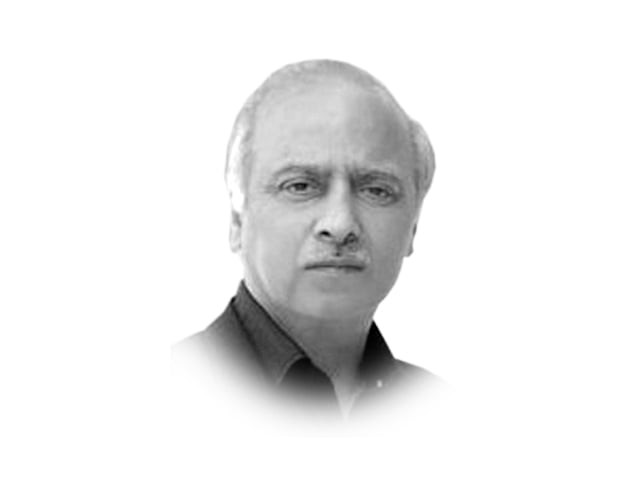Education or organised extortion?
How is organised extortion by most private educational institutions different from organised crime?

The writer heads the independent Centre for Research and Security Studies, Islamabad, and is the author of Pakistan: Pivot of Hizbu Tahrir’s Global Caliphate
A NAB statement alleged that Professor Ali and Dr Shah granted affiliation to NIMS Abbottabad without a mandate enshrined in the Khyber Medical University Act of 2006. NIMS, according to the NAB statement, lacked medical faculty and the former VCs conducted examinations at the “illegal” institute. Together, they not only deprived parents of their hard-earned money (to the tune of Rs550 million), but also played with the future of unsuspecting students.
This brazen action against prominent academicians, which many say is Pashtun-centric, has kicked up a storm. For these voices, the Pashtun have always been the victims as a consequence of the Soviet-Russian aggression in Afghanistan, the US response to it and then the post-9/11 Operation Enduring Freedom, and continue to suffer even now. Others have likened Dr Ali’s arrest to an assault on an academic institution. One would assume NAB did its homework before going after three noted professors. The onus of proving the former VCs guilty now rests with the watchdog. It will have to justify its actions that have tainted the image of the accused with charges of illegal, power-abusive conduct.
Now, regardless of the veracity of charges against the three academics, what we all need to ponder over and probe are matters such as the manipulation of university charters, dubious affiliations, questionable admission policies, non-compliance with the criteria laid down by the Higher Education Commission (HEC) and exploitative service structures for teachers in private universities and colleges. We need to question whether these are the ground realities or not.
How is organised extortion by most private educational institutions different from organised crime, such as extortion or abduction for ransom? Let us look at the problem of fake degrees first; this curse flows from private universities. In the absence of adequate controls, private universities and colleges are also offering courses — all designed to mint money — for which they don’t possess human resources. The HEC has so far nullified hundreds of degrees awarded by private institutions. The recent nation-wide parental outrage against arbitrary increases in fees and other charges by leading private educational institutions provided a glimpse of the financial exploitation taking place in the private sector. No university in Pakistan is mandated to offer distance-learning courses and degrees except the Allama Iqbal Open University. But a private university in K-P offers distance learning courses and awards thousands of degrees every year. It is, illegally, running nearly three dozen distance learning centres all over the province and one in Islamabad. Are NAB and the HEC aware of this? Some other universities wilfully manipulate enrolment and graduation processes; despite knowing their limitations, they admit students far above their quota. This means some students — even if bright and hard working — must fail, thus ensuring more revenue.
The question: is the HEC performing its function? It is still responsible for awarding degrees and grading universities across the country. It can also periodically conduct quality control checks. It requires every private university to have 10 acres of land, with at least two PhDs and at least 1,500 books per discipline. One wonders whether the nearly 65 private universities in Pakistan comply with the basic requirements as laid down by the HEC. When will the government and the HEC move to stop this organised institutional extortion?
Tailpiece: “Your departure will keep pricking my conscience,” remarked the VC of a private university when a colleague of his informed him that he couldn’t put up with the greedy commercial approach of the institution anymore and was resigning. Ironically, the one who resigned in deference to the sanctity of education is today marginalised while the VC continues his job even today, leaving others to wonder whether his conscience was indeed affected by his colleague’s departure or not.
Published in The Express Tribune, October 1st, 2015.
Like Opinion & Editorial on Facebook, follow @ETOpEd on Twitter to receive all updates on all our daily pieces.















COMMENTS
Comments are moderated and generally will be posted if they are on-topic and not abusive.
For more information, please see our Comments FAQ